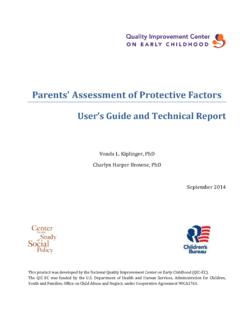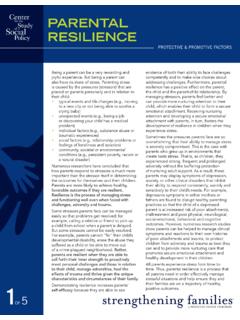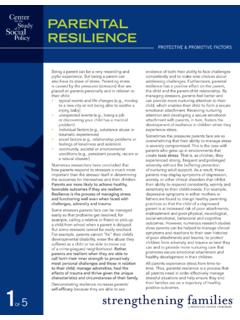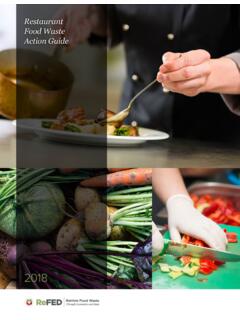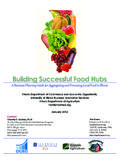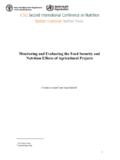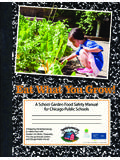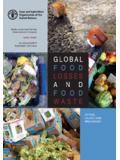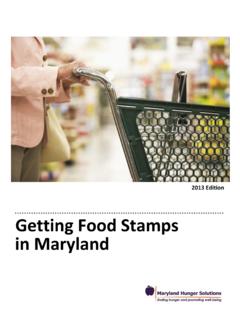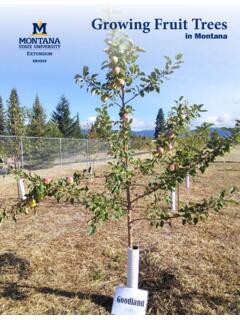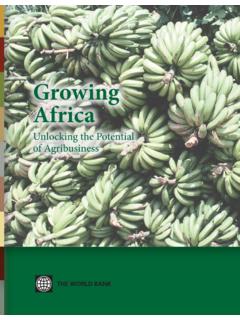Transcription of Growing and Sustaining Parent Engagement
1 Commissioned by First 5 LAPrePAred by the Center For the study oF soCiAL PoLiCydeCember 2010 Growing and Sustaining Parent EngagementA toolkit for parents and Community PartnersAcknowledgementsAlong with lessons learned from programs implemented across the nation, this toolkit features Parent Engagement approaches and strategies that are utilized by parents and partners involved with First 5 LA s Partnerships For Families 5 LA is dedicated to ensuring that all young children throughout Los Angeles County are raised in nurturing environments where they are healthy, eager to learn, and able to reach their full potential. To accomplish these outcomes, it has invested more than $699 million in grants, programs, and initiatives. Partnerships For Families (PFF) is a five-year First 5 LA initiative that was launched in 2005 to provide voluntary child abuse prevention services to pregnant women and families with young children. PFF encourages the development of community networks of services and supports that can help parents nurture their children and also manage stress before it escalates.
2 Rather than engaging parents solely as recipients of assistance, PFF aims to join with them as full partners in defining and achieving goals within their own families and communities. The collective wisdom and contributions of parents , staff, and community partners working in support of PFF were instrumental to this toolkit s development. Their commitment to uplifting Parent Engagement as essential to improving outcomes for young children and their families not just for PFF , but for all efforts to improve the effectiveness and responsiveness of systems to families guided this project from start to the authorThe Center for the Study of Social Policy (CSSP) works to secure equal opportunities and better futures for all children and families, especially those most often left behind. At the center of this vision is a commitment to ensure that: Children are healthy Children enter school ready to learn and are prepared to succeed Youth are prepared to succeed as adults Children grow up in safe, supportive and economically successful families Communities have the resources and opportunities families need to succeed To achieve these results, CSSP improves public policies, systems and communities by building protective factors, reducing risk factors and creating opportunities that contribute to well-being and economic of Contentsi.
3 Toolkit overview Pg. 2 Purpose of the Toolkit How to Use the Toolkitii. background Pg. 3 What is Parent Engagement ? Why is it important? What do we mean by sustainability? What will success look like?iii. Sustaining and improving Parent Engagement Pg. 4-6 How did this effort come about? What does experience tell us about the importance of each strategy?iV. Achieving success: guide for Creating your own strategies Pg. 7-17 Creating a Parent Engagement Roadmap Developing a Parent Engagement Checklist/Self Assessment Establishing a Parent Engagement Support NetworkV. source material & Additional resources Pg. 182 Growing and Sustaining Parent Engagement tookit overviewI. Toolkit Overview Purpose of the toolkitThe Toolkit is a quick and easy guide to help support and sustain Parent Engagement . It provides how to s for implementing three powerful strategies communities can use to maintain and grow Parent Engagement work that is already underway: Creating a Parent Engagement 1) Roadmap, 2) Checklist and 3) Support to use the toolkitThis toolkit includes information, examples, and helpful questions that parents and community partners can draw from as they jointly develop Engagement strategies that reflect their unique priorities and communities.
4 It includes the following sections:Section I. Toolkit Overview Purpose and organization of the II. Background Defines Parent Engagement and sustainability, including what success looks III. Building and Sustaining Parent Engagement Describes how and why the Parent Engagement Roadmap, Checklist and Support Network sustainability strategies were created. Introduces key Parent Engagement concepts and questions to help guide strategy development. Section IV. Achieving Success: guide for Creating Your Own Strategies Provides information, examples, and questions to help you create your own Parent Engagement Roadmap, Checklist and Support Network. Section V. Toolkit Resources List of source documents and recommended tools that provide a more detailed explanation of information way you approach someone about getting involved or offering help can turn them on or off. [As a Parent ] when someone has an attitude that they re above me, it s tough to take. I appreciate situations where people can relate more as equals and it s consistent because that s the culture.
5 Background 3 What is Parent Engagement ? Parent Engagement is an overarching principle and approach for involving families in decisions about themselves, their children, services, and their communities. It includes a wide array of activities, such as: Direct relationships with service providers Mutual support shared among parents Advocacy by parents on behalf of their families Decision-making and advisory roles in agencies Leadership in the communityFor public, private, and grassroots organizations committed to community building efforts, Parent and family Engagement helps ensure buy-in for shared goals and strategies. Just as importantly, community networks of support are strongest when built by and with engaged parents and other do we by mean by sustainability?Sustainability is defined as the capacity to keep an action or process going. The strategies discussed in this toolkit are intended to support the ongoing development, existence and growth of Parent Engagement activities in communities agencies and networks, both as a part of and also independent of funded is it important to maintain, build and support Parent Engagement ?
6 Parent Engagement strategies help parents to develop new capacities, skills, and knowledge they can use again and again to strengthen their families and communities. The most effective service systems and community initiatives are guided by what parents say they need to be stronger and better parents , and by a commitment to obtaining regular feedback from families about programs and services. It is important to maintain the commitments and momentum of parents who have invested the time to organize themselves and make a positive difference. Engaged and empowered parents can work together to continue implementing strategies that strengthen families long after an initiative has does success look like? parents are working with one another, agencies, and community partners to continue strengthening programs, neighborhoods and families in a variety of they have chosen for themselves. This includes: parents helping to organize and lead family and community initiatives. Agencies and community groups turning to parents for their input, expertise, and guidance in program planning and policy development.
7 parents regularly engaging in community and agency decisions about their BackgroundParents come out when they feel sense of I m being respected, appreciated and acknowledged as an important part of a group or activity. 4 Growing and Sustaining Parent Engagement strategy #1: develop roadmaphow did this effort come about?Local parents , agency liaisons, and community partners came together for two interactive forums in December 2009 and August 2010 to share their experiences and successes with Parent Engagement . Their approaches, strategies and lessons learned were also documented in two 2010 publications: 1. A PFF Parent Engagement Celebration Luncheon Summary Report that includes recommendations for expanding local efforts to engage parents as full partners in ongoing community initiatives; and 2. The PFF Case Study, entitled Stories and Lessons from Los Angeles Communities, which identified the critical need for the continuation of Parent Engagement strategies and supports established by local PFF addition to PFF representatives, forum participants included parents affiliated with the Department of Children and Family Services parents in Partnership (PIP) program.
8 Through PIP, Parent Partners who have been through the child welfare system help other newly involved parents work toward their goal of reunifying or maintaining their family. They serve as advocates who help parents to understand their rights within the system and also help to keep lines of communication open between families and service the August 2010 forum, parents , agencies and partners agreed on three sustainability strategies as the way to maintain, build, and support Parent Engagement more broadly: 1) Create a Parent Engagement Roadmap, 2) Develop a Parent Engagement Checklist, and 3) Establish a Parent Engagement Support Network. They also defined the benefits of Develop a ROADMAP to guide agencies and communities so that the most effective Parent Engagement strategies are utilized in programs, initiatives, and Create a Roadmap? A Roadmap defines what a group believes is most important to achieving its goals, including the values and principles that guide its decisions and actions.
9 Having a Parent Engagement Roadmap that is defined by parents and partners helps communities and organizations establish a consistent set of standards and a defined path to success. What We ve Learned from Parent Engagement efforts are guided by the belief that parents are capable of setting and accomplishing their goals, learning new behaviors, and identifying the help they need to do so. They also recognize and value parents for their unique strengths and experiences, regardless of circumstance. III. Sustaining and Improving Parent EngagementYou have to listen really to what parents have to offer. Asking them to share their interests and abilities and to contribute helps them know you are somebody who appreciates them. Everybody has something to offer even if it s drawing from all the positive things they do for their spouses or children they may not talk about and that s a very different perspective because it s not based on need.#1 Getting information I can really use for myself and my kids is a big incentive to participate.
10 Even a calendar that lists all of the different free events at the library or other resources in the community is a big help because it saves me the time it would take to look all that #2: Create Checklist 5 Rather than adhering to old notions that services fix those who need help and support, practitioners engage parents as respected partners working toward goals defined by Local parents and Partners Chose This A Road Map will help guide us and it will also help others to understand what we re about and the goals we want to achieve. It will help parents better understand why Parent Engagement matters and how to participate at whatever level is best for them. strAteGy Create a CHECKLIST to help agencies and communities assess the effectiveness of Parent Engagement Develop a Checklist? A Checklist helps parents and partners assess how well they are doing in following their Roadmap. Self assessments (using a Checklist) allow groups to measure progress achieved toward Parent Engagement goals and also see how well the strategies they are implementing align with their core values and We ve Learned from specific outcomes that Parent Engagement work is expected to bring about, including improvements in family-and community well-being or service systems, will enable partners to determine if and when they are successful.
